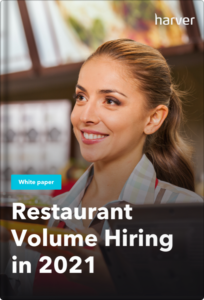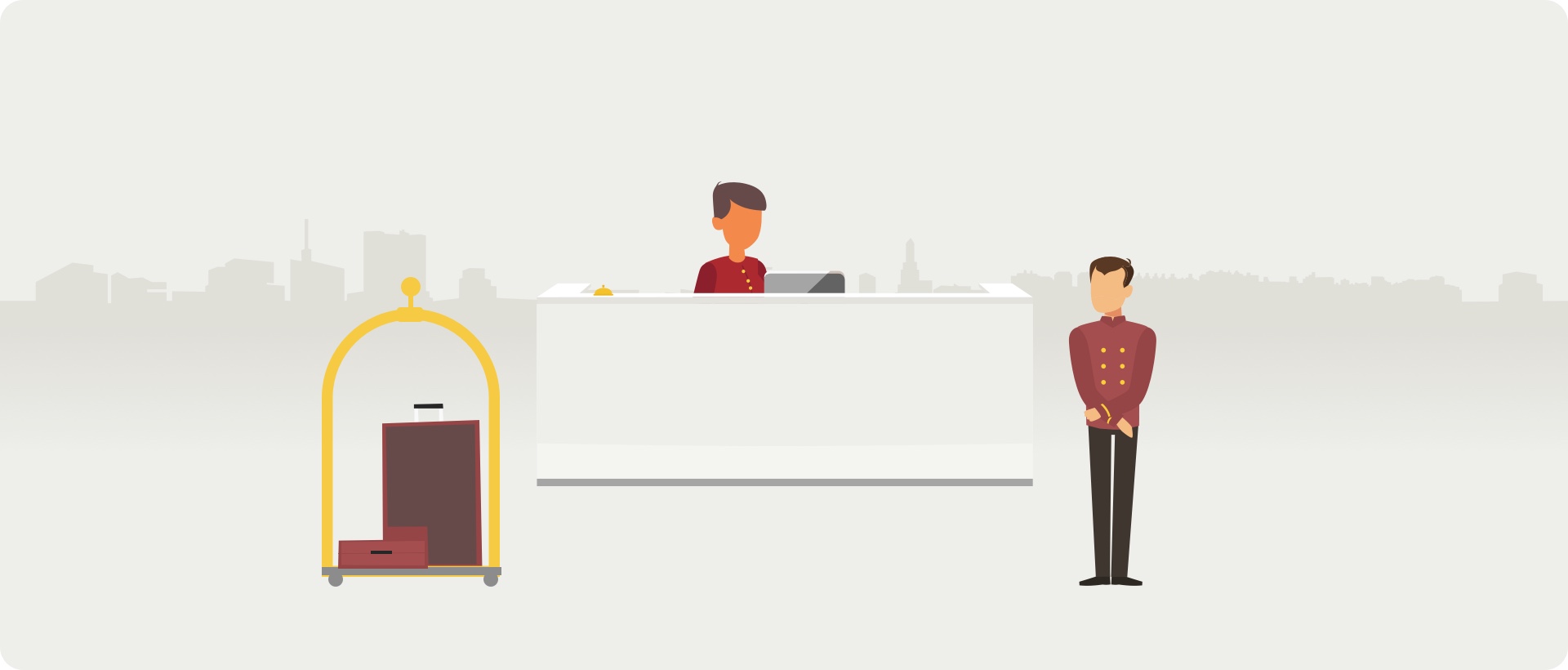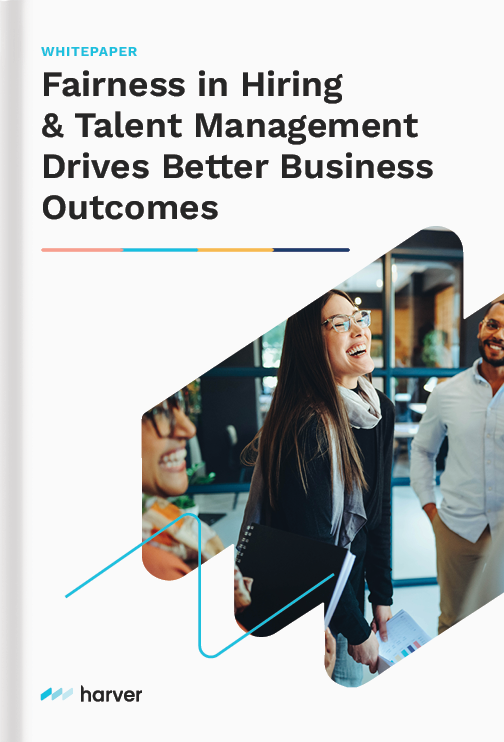Before anyone had ever heard of a Hilton hotel, Conrad Hilton set out to “fill the earth with the light and warmth of hospitality.” Today, his wildly successful international hotels continue to champion a sense of community and welcome in the hospitality industry — for both guests and staff members. Hilton’s passionate words are now the opening line of the company’s award-winning policy on diversity and inclusion.
The company’s work is inspiring — but what does it mean to other hospitality teams? Should policies of inclusion apply to the industry as a whole? Should you or your managers invest time and resources in creating a diverse team and building an inclusive workplace?
Will it all really improve your business and impact the bottom line?
Yes.
Creating an inclusive workplace will improve your hospitality business in every way.
Here are some of the reasons why, and the three essential areas of focus for building an inclusive hospitality workplace. It’s time to make everyone feel welcome!
What’s in?
Like what you see?
Don’t miss out. Subscribe to our monthly digest to get the latest TA and TM resources delivered right to your inbox.
What is workplace diversity, and why does it matter?
It’s a simple idea, really: a diverse workplace incorporates unique individuals with a wide range of skills, perspectives, and experiences. While these workers may be different, they come together in the spirit of achieving the same goal. They may not look or act the same, and they probably come from different places, too.
Some of the traits we most often consider when discussing workplace diversity include:
- Age
- Gender
- Religion
- Ethnicity
- Race and culture
- Sexual orientation
- Educational background
As Dr. Art Langer, Chairman and Founder of Workforce Opportunity Services, says, “We pass diverse candidates every day — on the street, at the train station, in the parking lot. But accessing them is a much different thing. Time and time again, recruiters and human resource professionals depend on standard methods for talent acquisition and hope for different results. They recruit on campuses at the same elite universities; they utilize online application software to screen for ‘the right’ backgrounds, i.e., cookie-cutter backgrounds; and they trust their guts when assessing culture fit. We know workplace diversity can boost our bottom line, but we’re also aware that utilizing the same tired approaches isn’t yielding results.”
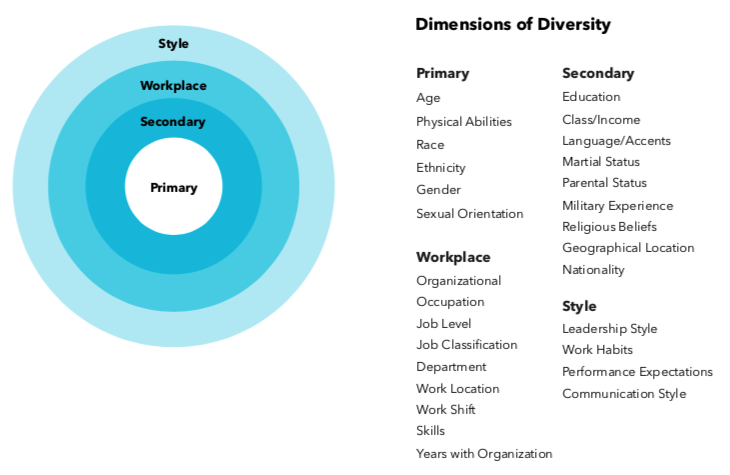
Diversity has numerous dimensions, some of them less visible than others. Keep that in mind when considering diversity at your company.
As Dr. Langer notes, diverse workers bring a unique set of assets to your business, and it truly affects the bottom line:
- The more diversity your workers bring to the table, the wider your talent pool will be — and that makes for better ideas.
- Research shows that diverse and inclusive teams outperform the competition by 80%.
- A comprehensive study from Josh Bersin & Associates indicated that companies reporting inclusive talent practices demonstrated higher cash flow and superior business outcomes than their peers.
How to be inclusive in the workplace?
Diversity means little without inclusivity. To be inclusive in the workplace, it’s essential to proactively create workplaces where a wide range of opinions, backgrounds, and sorts of people can do more than clock in each day and go through the motions. You want to see everyone in your hospitality department succeeding: they should have the chance to thrive, grow, and feel included.
There are specific qualities that managers and team members must embrace to create an inclusive environment. According to Gallup’s workplace survey, these key components include:
- Mutual respect among all players
- Individual empowerment
- Active value and appreciation for team members
- Trust and vulnerability
- Safety for everyone
- A culture of innovation
For example, certain concrete actions and policies create a framework that supports an inclusive work environment from the ground up. Consider:
- Crafting anti-discrimination policies and zero-tolerance practices for racism
- Developing educational programs and open dialogue support policies to aid new staff during the hiring and on-boarding process (and beyond!)
- Re-writing traditional benefits policies to consider everyone equally, such as offering “parental leave” as opposed to “maternity leave”
Furthermore, be open to exploring less traditional sources of talent. For example, you can look into sourcing ex-offenders or refugee workers. Often, these people are the very first diverse talent to join their new teams. Their managers report major gains in morale, productivity, increased retention rates and much more.
Deloitte’s Inclusion Model
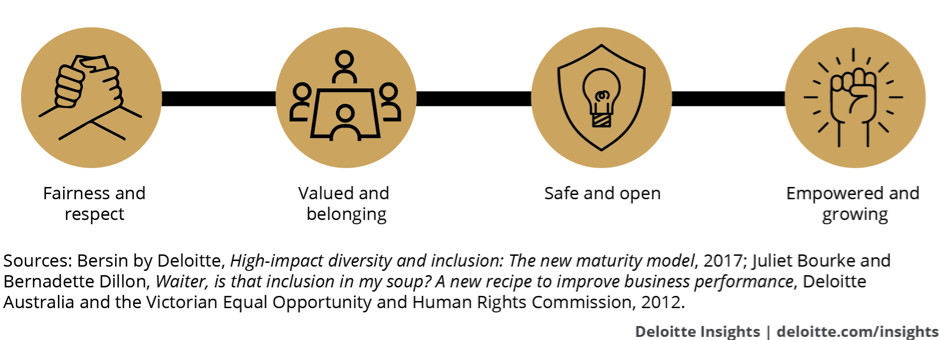
Deloitte’s research revealed that the concept of inclusion comprises four distinct but related elements.
Does workplace inclusivity affect hospitality?
Short answer: yes, of course.
In fact, at the Food & Wine Classic in Aspen, Colorado, the American Express Restaurant Trade Program hosted an entire panel dedicated to workplace inclusivity in the restaurant industry. Leaders from across the country joined in the conversation — titled “Hospitality’s Moment to Lead” — and focused on the power of modern hospitality to be a driving social force for equality and diversity.
While the panel’s chefs and restauranteurs all presented unique insights, they agreed that the recipe for success — in both restaurants and hospitality as a whole — lies in creating a supportive, welcoming environment for both diverse staff and guests. Reports indicate that diverse management teams rake in an average of 19% more revenue so that success reaches all the way from front-of-house to the bottom line.
Take a look at these three main areas of focus for crafting a more inclusive hospitality workplace of your own.
1. Welcome everyone: the importance of place
First things first: physical space is essential to how we work.
In the words of Jennifer Janus, president of Detroit-based workplace design firm Pophouse, “The days of creating a workplace with simply a desk and chair for each employee are long gone.” Her teams apply research, analytics, and employees’ actual work tasks to create inclusive, purposeful environments for everyone.
“What’s happened over the last couple years is we’ve really started to also focus on a lot of other things such as wellness in the space, productivity, how people are feeling,” she says. “So if they’re in a workspace, are they energized? How do they change the way they work at different times of day?”
Janus’s team reports better teamwork, increased productivity, and enhanced happiness from their clients, who span over 2,000 unique locations. Their home office provides the perfect example: designers collaborate in a custom work environment created from Detroit’s old Dime Savings Bank, enhanced with inclusive features like yoga mat storage and a pillow pit.
Every workplace is different, and a pillow pit likely won’t suit your hospitality workspace. However, why not consider something as simple as having a break room equipped with space to warm up homemade dishes for lunches and potlucks?
As a behavioral scientist, Dr. Pragya Agarrwal writes, “The first step towards designing an inclusive workplace is acknowledgment and acceptance of differences. It is about offering choices to people.” Many of her suggestions make hospitality spaces more comfortable for guests, too — think about:
- Incorporating ramps as well as stairs
- Making doors and handles easy to operate
- Considering integrating a variety of both large and small spaces (for both acoustics and comfort!)
- Incorporating texture and color that aids in wayfinding and safety (like flooring or mats with a good grip)
- Customizable lighting
What comforts — large or small — could boost your team’s physical comfort? Could there be specific changes, even small alterations, to your work environment that will boost their confidence or add joy?
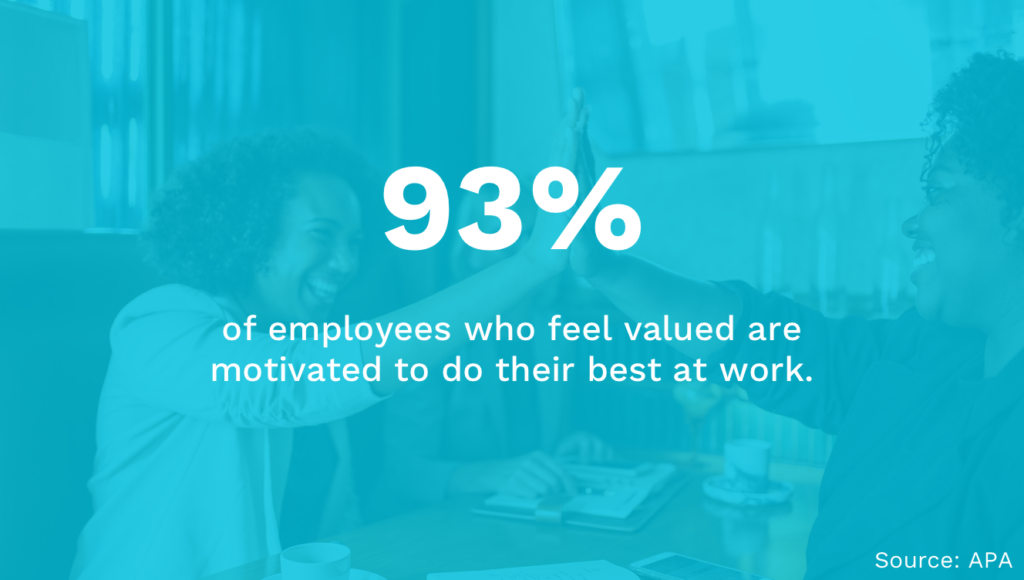
Making your employees feel valued will be rewarded by increased engagement and productivity.
Fairness in Hiring & Talent Management Drives Better Business Outcomes
Fair talent decisions help both hospitality businesses and job seekers. Read this insightful whitepaper to learn how hiring and process fairness drive innovation, reduce hiring costs, and support a diverse workforce.
2. Communicate clearly: the importance of attention
Traci Des Jardins is chef and owner of Mijita Cocina Mexicana, and a partner at five additional San Francisco restaurants: Arguello, Transit, Public House, The Commissary, and School Night. When asked about creating an inclusive kitchen, she found that it demanded an attentive, comprehensive strategy — and clear language to support it.
“I had to think hard about balancing my kitchen — we had to work at creating an environment where a more diverse group of people could thrive. I had always worked with white men. But we knew we had to make a space for different cultures and to acknowledge different backgrounds so that we would not perpetuate the mistakes of the past.”
In San Francisco, she found that communication troubles were holding her teams back. Specifically, they brought an impressive work ethic to the job but lacked confidence in their English language skills.
Traci embraced the situation and gave her team the tools and support to fix the problem.
“Language and communication are pivotal. We have a tremendous Hispanic population in San Francisco,” she said. Her diverse workers wanted to take on bigger and better roles but weren’t making the leap. “Language is the barrier, I realized,” she added, so she created an English training program to support the team.
Value of careful communication impacts workplaces well beyond hospitality, too. Storr Office Environments in Raleigh, North Carolina hired several refugees, among other non-majority workers. When managers realized that their diverse workforce was hungry to learn, they partnered with a local college — for the first time in company history — to offer supplemental classes and English language training for employees.
In exchange, they now have a team of dedicated, joyful workers who show up early and stay late. Morale and work quality have both skyrocketed.
How can you improve communication with your team? For these diverse teams, the answer was simple and technical: they were literally using different languages. But according to an Interact survey, 57% of employees report not being given clear directions, and 69% of managers logged that they were uncomfortable communicating with employees overall.
To be inclusive (and profitable!), your workplace must fight these statistics and pay attention to possible communication issues.
Perhaps classes or training — in English or otherwise — could help everyone to get on the same page. Maybe the key lies in holding more regular meetings, encouraging a more open dialogue, or simply crafting clearer job guidelines. Just remember to remain open, attentive, and accessible: communication is a two-way street.
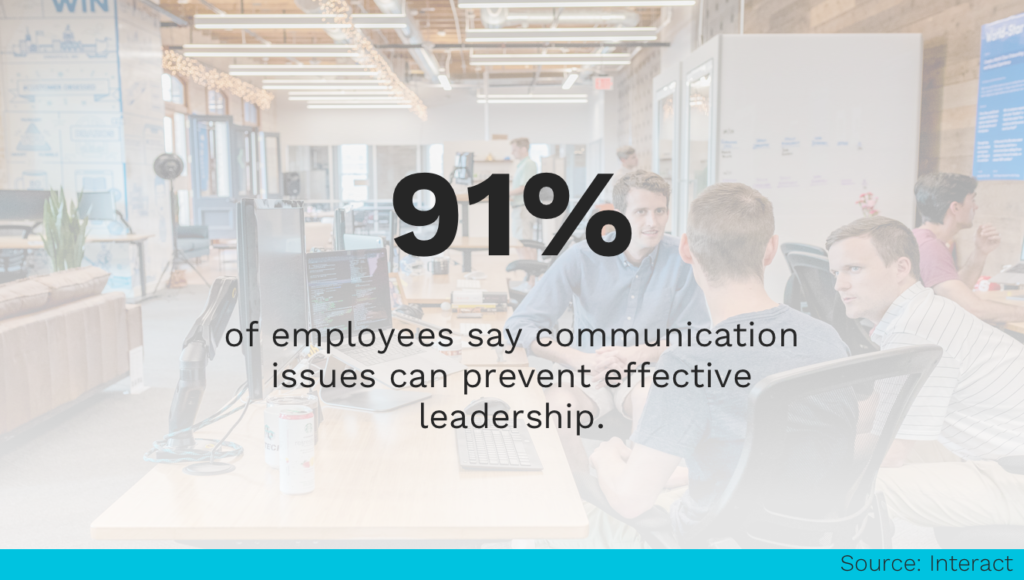
Communication problems are very common and can have a tremendous negative effect on your workforce. Pay attention to the issues and look for ways to overcome them.
3. Craft connections: the importance of community
In the hospitality industry, customer engagement is arguably more critical than in any other space. There’s also a good chance that you’ll find yourself welcoming more diverse customers AND staff — after all, as Thai luxury hotelier and hospitality entrepreneur Anchalika Kijanakorn says, “A hotel is always open and always on. It’s also a people business; to be front-of-house you need to like people.”
To create a genuine sense of community and provide an authentic welcome, it’s essential to craft connections from the inside, out. Great hospitality businesses require internal support and deeply connected communities of their own. Hilton Hotels’ official Diversity and Inclusion policy states:
“Diversity is at the core of our Vision, Mission, and Values. We are committed to an inclusive workforce that fully represents many different cultures, backgrounds, and viewpoints. Our global brands provide meeting places for people from all walks of life to connect, creating a welcoming environment for all.
Understanding our Team Members’ unique perspectives, along with those of our Guests, Owners, Suppliers, and Partners, is essential to driving our competitive performance. Our company will always strive to reflect the global communities where we live and work.”
Hilton backs up the policy with tons of inclusive initiatives: leadership mentoring programs, apprenticeship opportunities, generous benefits, career counseling, and educational partnerships. In return, both the bottom line and company morale benefit. “Employees at all levels who feel supported do better work, particularly in a company whose business is hospitality,” says Jon Munoz, vice president of global diversity and inclusion. The industry has taken notice, too — Munoz and Hilton won top honors on Fortune’s Best Workplaces for Diversity list in 2018.
You don’t need to rewrite your company’s entire programming to build a sense of community and connection for diverse workers. Sometimes, crafting connection can be as simple as holding team lunches — after all, it’s a people business, and great hospitality teams tend to inherently like socializing. As Marcus Samuelsson, chef and owner of the Marcus Samuelsson Group, reminds us, “The word ‘restaurant’ means to ‘restore’ a community.”
Think about simple gestures like:
- Organizing team meals or “family dinners.”
- Encouraging potlucks to share special foods or celebrate holidays.
- Scheduling shifts with “floating” considerations for special days — we all celebrate differently.
- Participating in charity events and causes that matter to the community.
- Offering shadowing or mentorship opportunities.
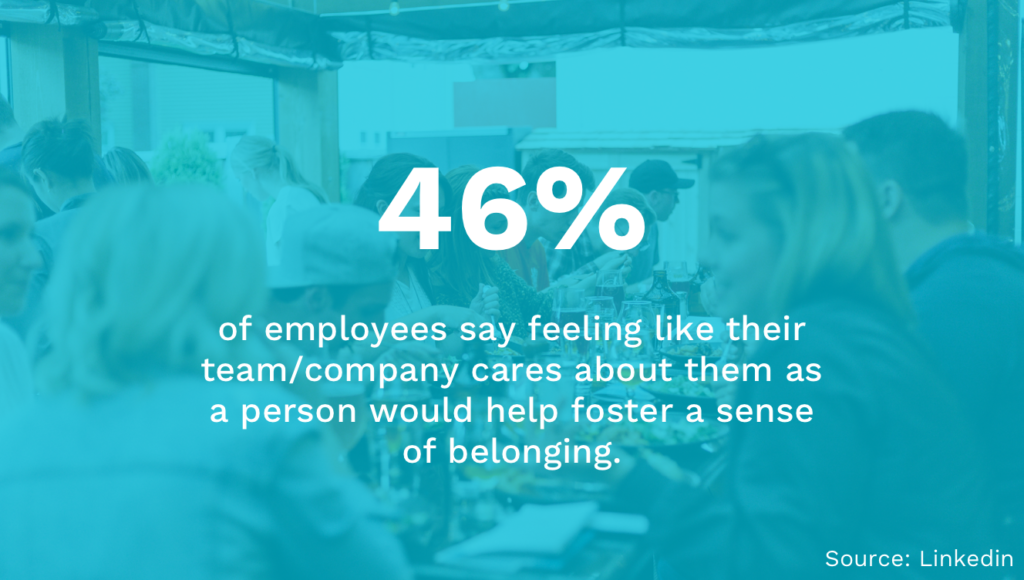
Strengthen a sense of belonging in the workplace through common activities and encourage building a true employee community.
Welcome, and welcome back: the inclusive workplace embodies the spirit of hospitality
A key trend from the 2023 New York University International Hospitality Industry Investment Conference: Labor continues to be a challenge. Specifically, US hotels alone are down 350,000+ workers from 2019, and hospitality has the highest quit rate for US industries.
Successful hospitality businesses will need to make themselves more distinctive than ever before. The competition for hospitality talent is fierce. And personal, particular candidate and employee experiences will win the day.
By setting forth space, attention, and effort to creating inclusive workplaces for staff, there’s an opportunity to build unique and personal experiences from within. The more diversity, joy, and comfort hospitality businesses can add to their teams, the more they can deliver to guests.
Let’s make everyone feel at home!
| About the Author: Chris Chancey is CEO and Founder at Amplio Recruiting. He focuses on having a direct impact in integrating the refugee workforce with modern American companies. His agency finds great placements for exceptional members of this unique community, building diverse teams for industries of all kinds. |
- White paper
Before you continue!
Don’t forget to grab your free copy of our white paper on the digital transformation of restaurant volume hiring. Learn about:
- The challenges currently shaping the restaurant recruitment space
- How restaurant employers can navigate the tight labor market, and the role of technology in a future-proof recruitment process
- The four building blocks of a fully digital recruitment process
